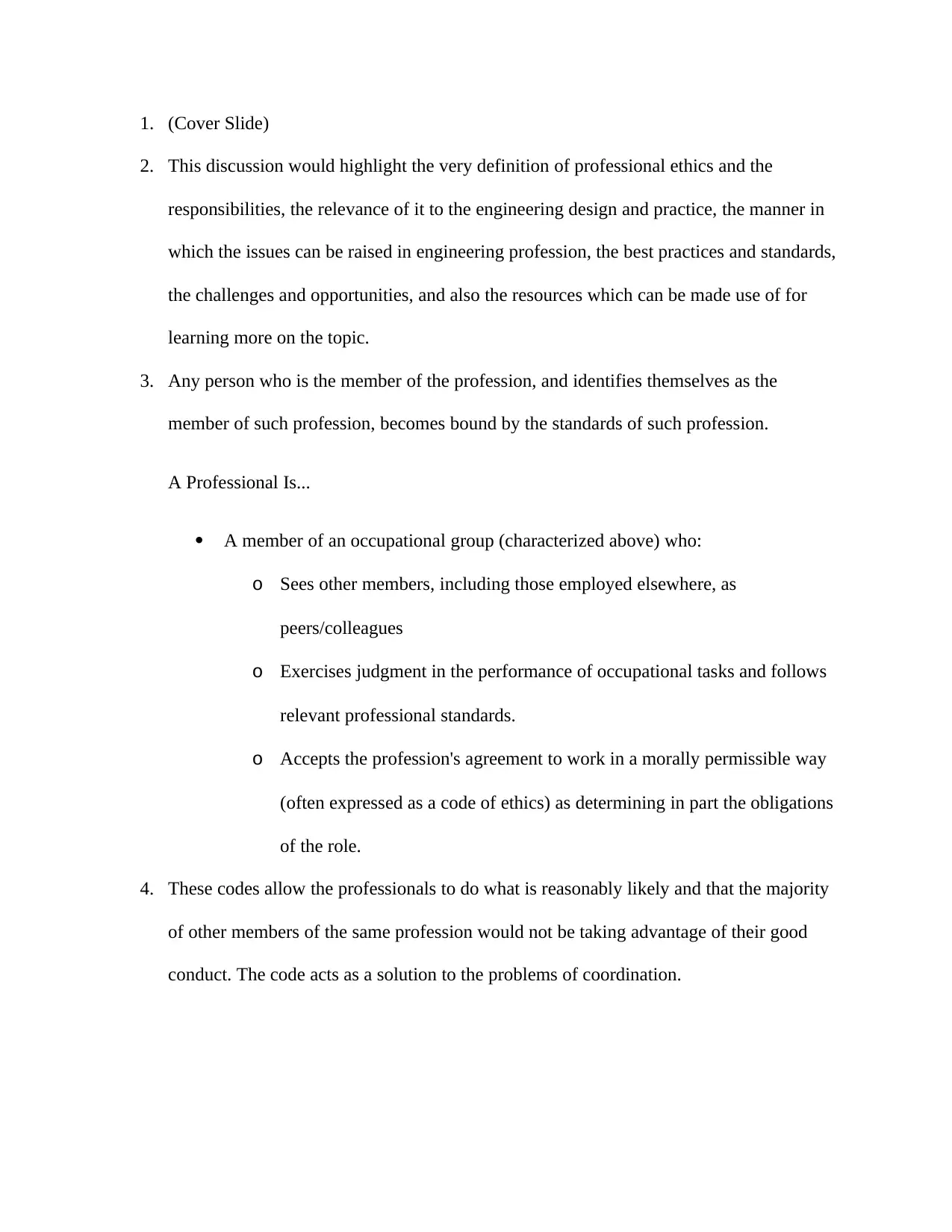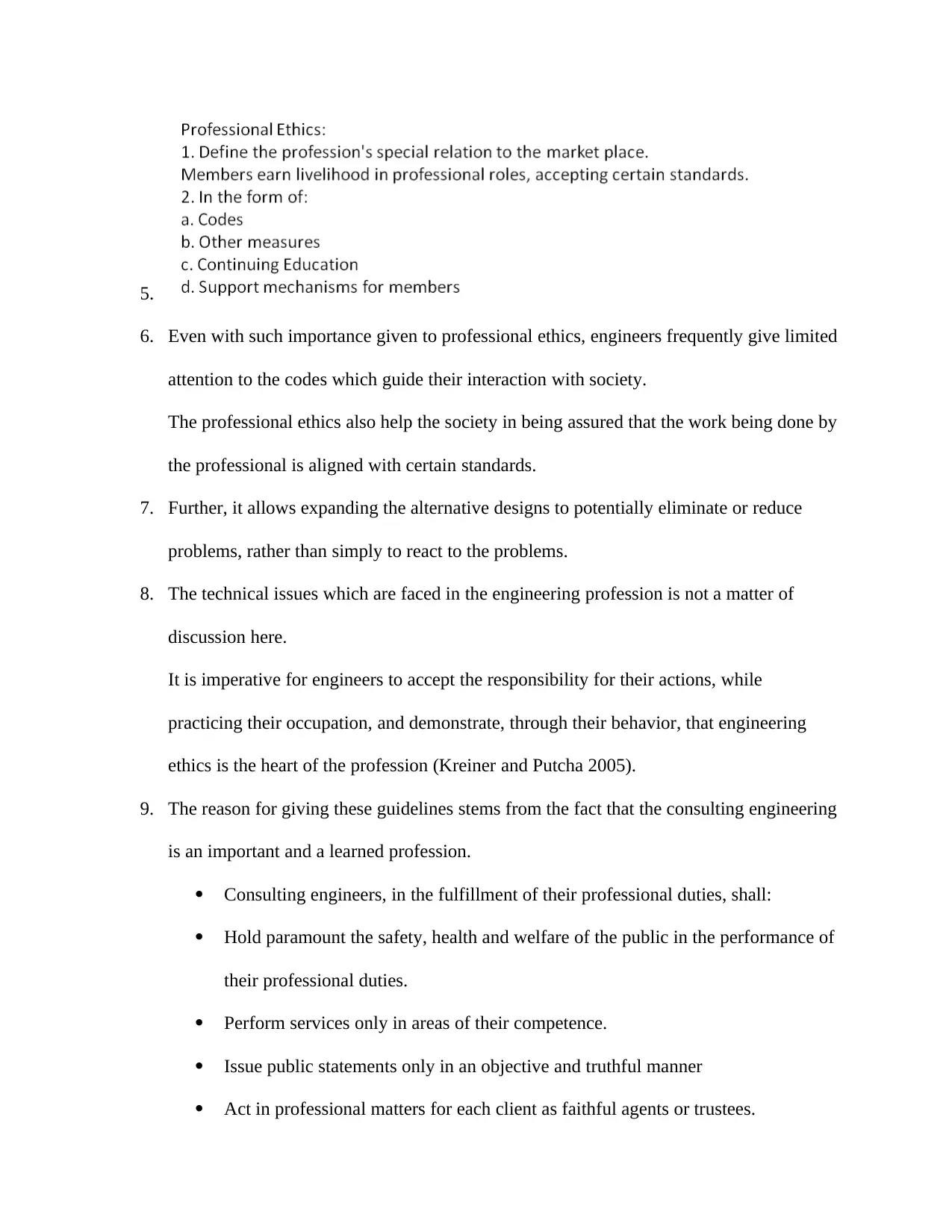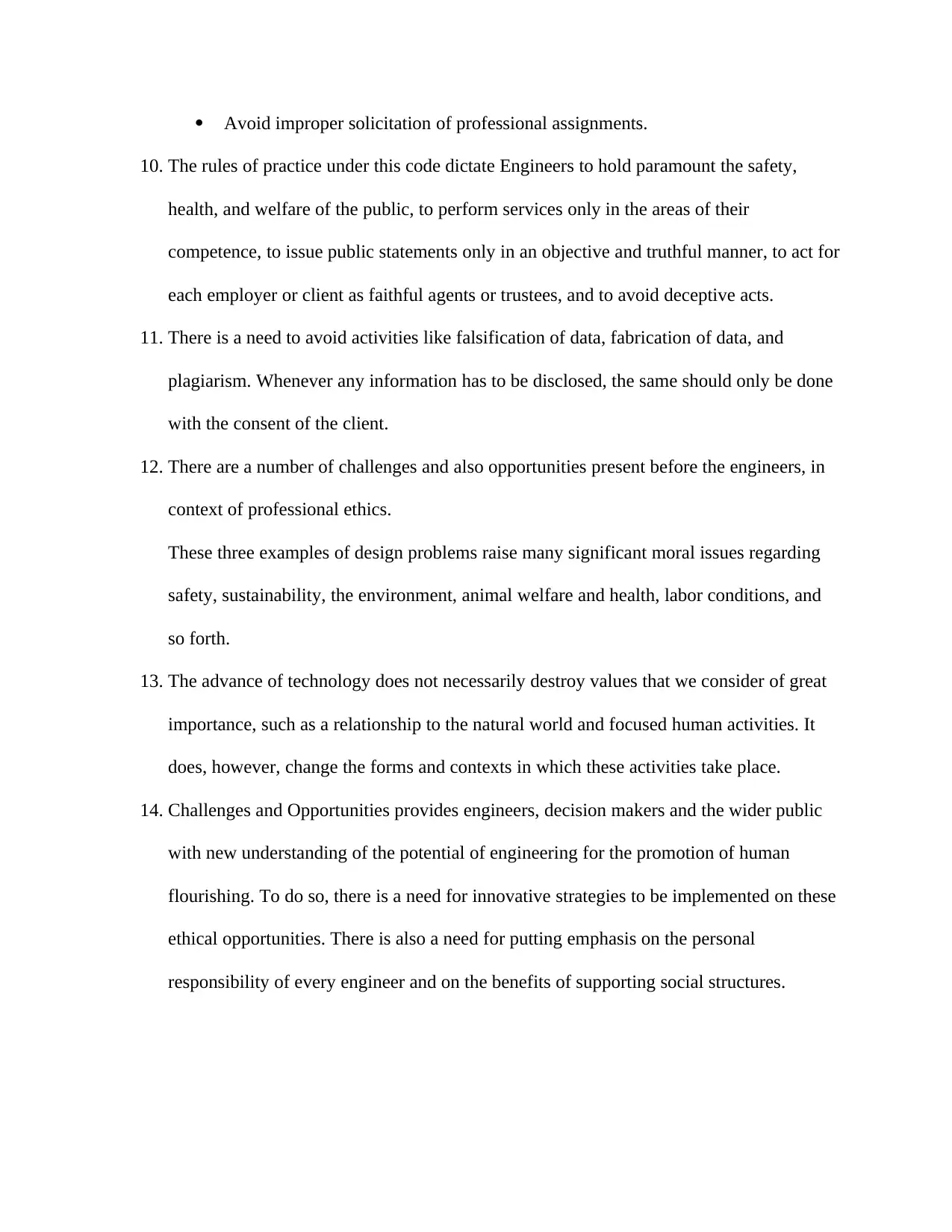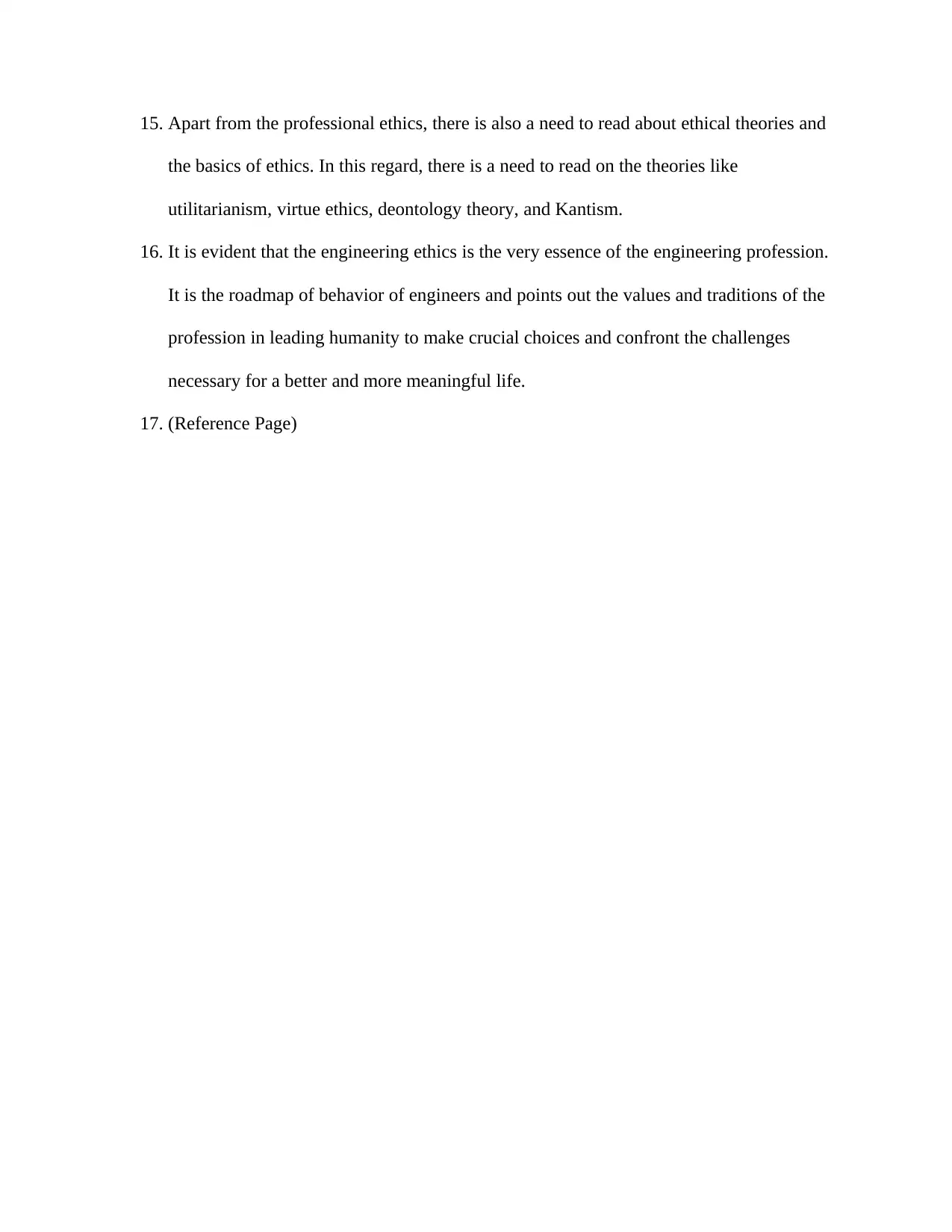The Role of Professional Ethics and Responsibilities in Engineering
VerifiedAdded on 2023/06/15
|4
|860
|427
Presentation
AI Summary
This presentation provides a comprehensive overview of professional ethics and responsibilities in engineering design and practice. It defines professional ethics, highlights the responsibilities of engineers, and emphasizes the relevance of ethical considerations in engineering design. The discussion covers how ethical issues can be raised in the engineering profession, best practices and standards, challenges and opportunities in upholding ethical standards, and resources for further learning. It underscores the importance of engineers adhering to professional codes of conduct to ensure public safety, perform services competently, and act as faithful agents for their clients. The presentation also addresses the need to avoid unethical practices such as data falsification and plagiarism, and emphasizes the importance of personal responsibility and innovative strategies to promote ethical behavior in the engineering profession. Furthermore, it encourages engineers to explore ethical theories such as utilitarianism, virtue ethics, deontology, and Kantism to enhance their understanding of ethical decision-making.
1 out of 4











![[object Object]](/_next/static/media/star-bottom.7253800d.svg)